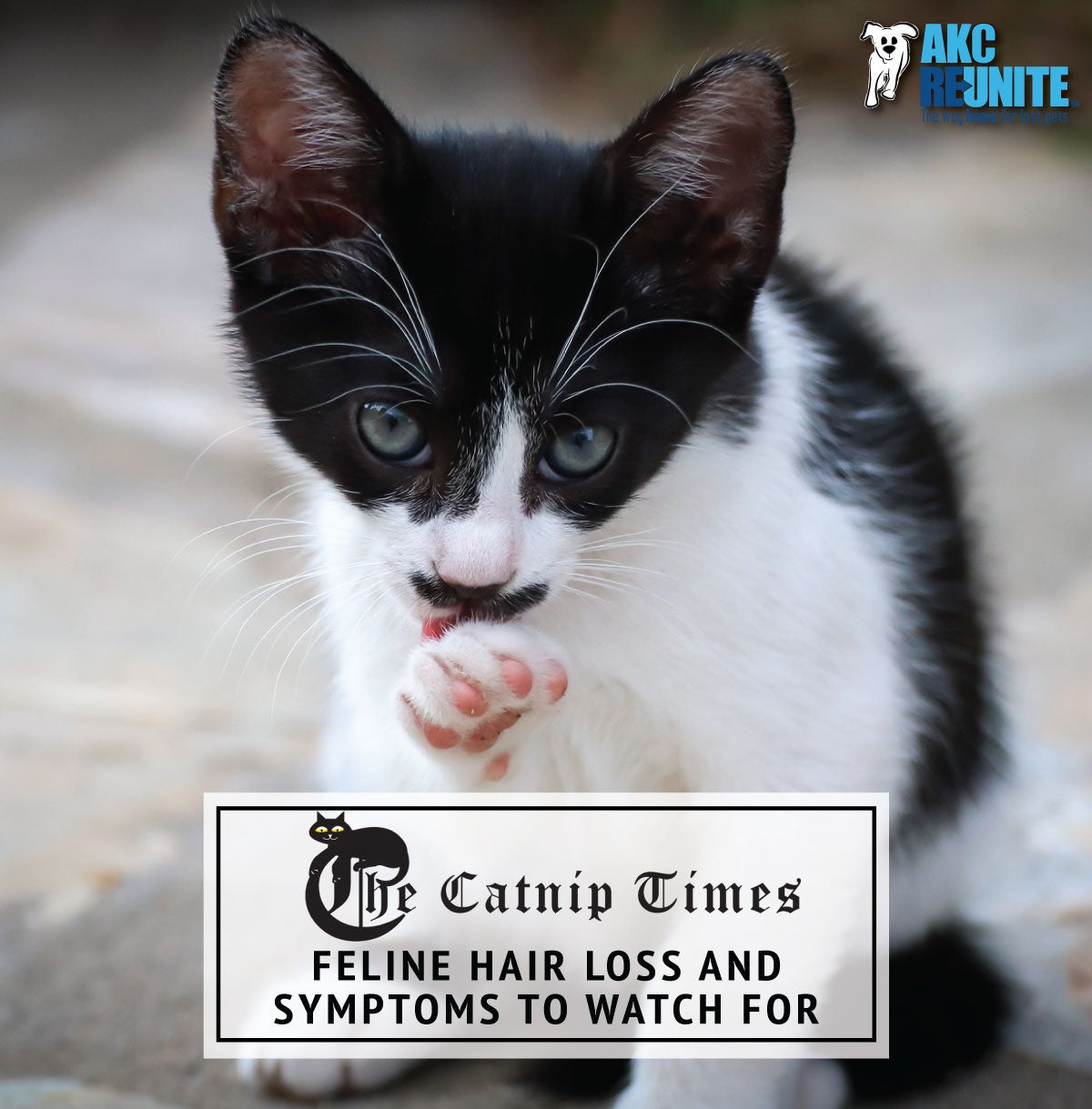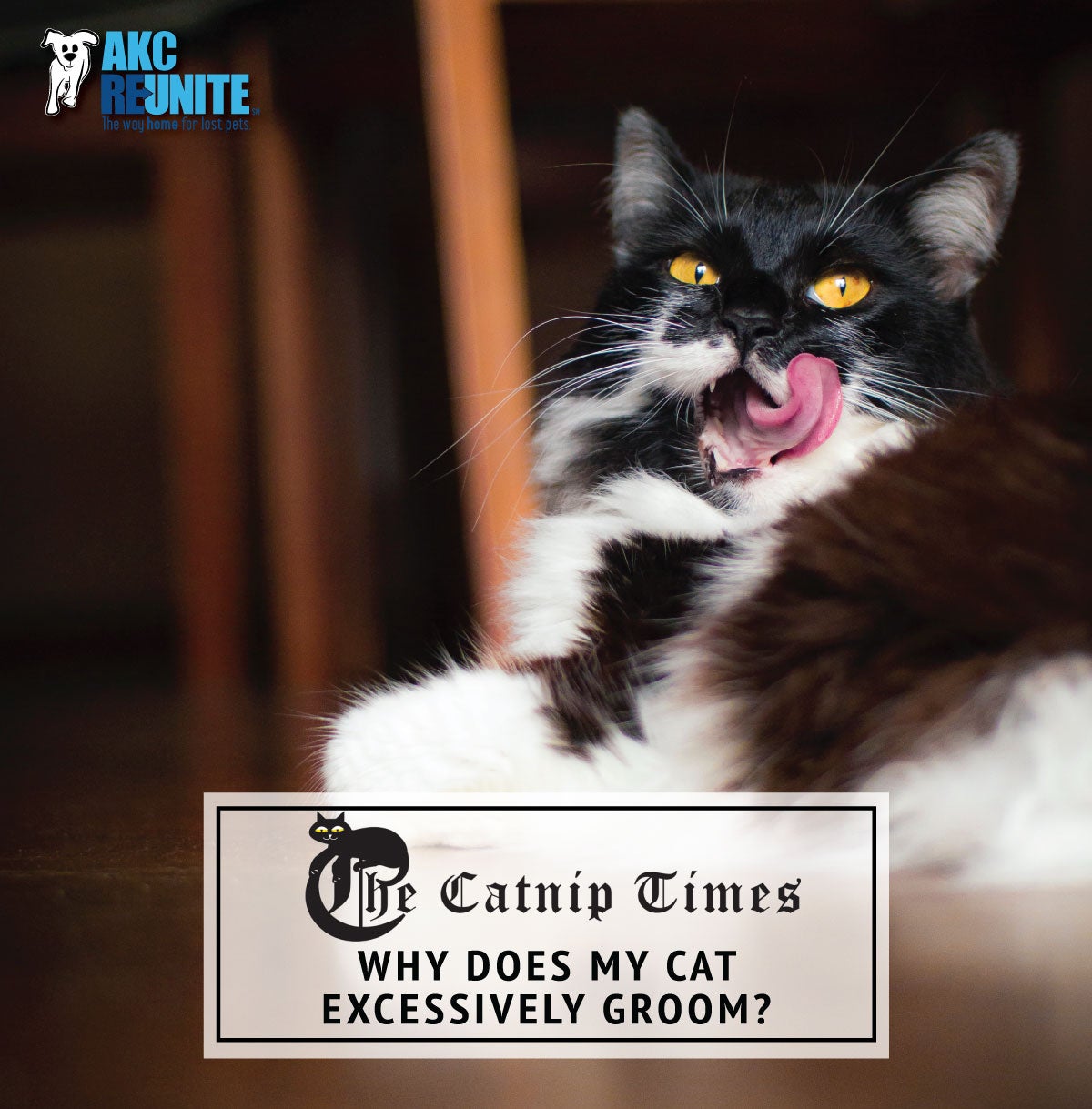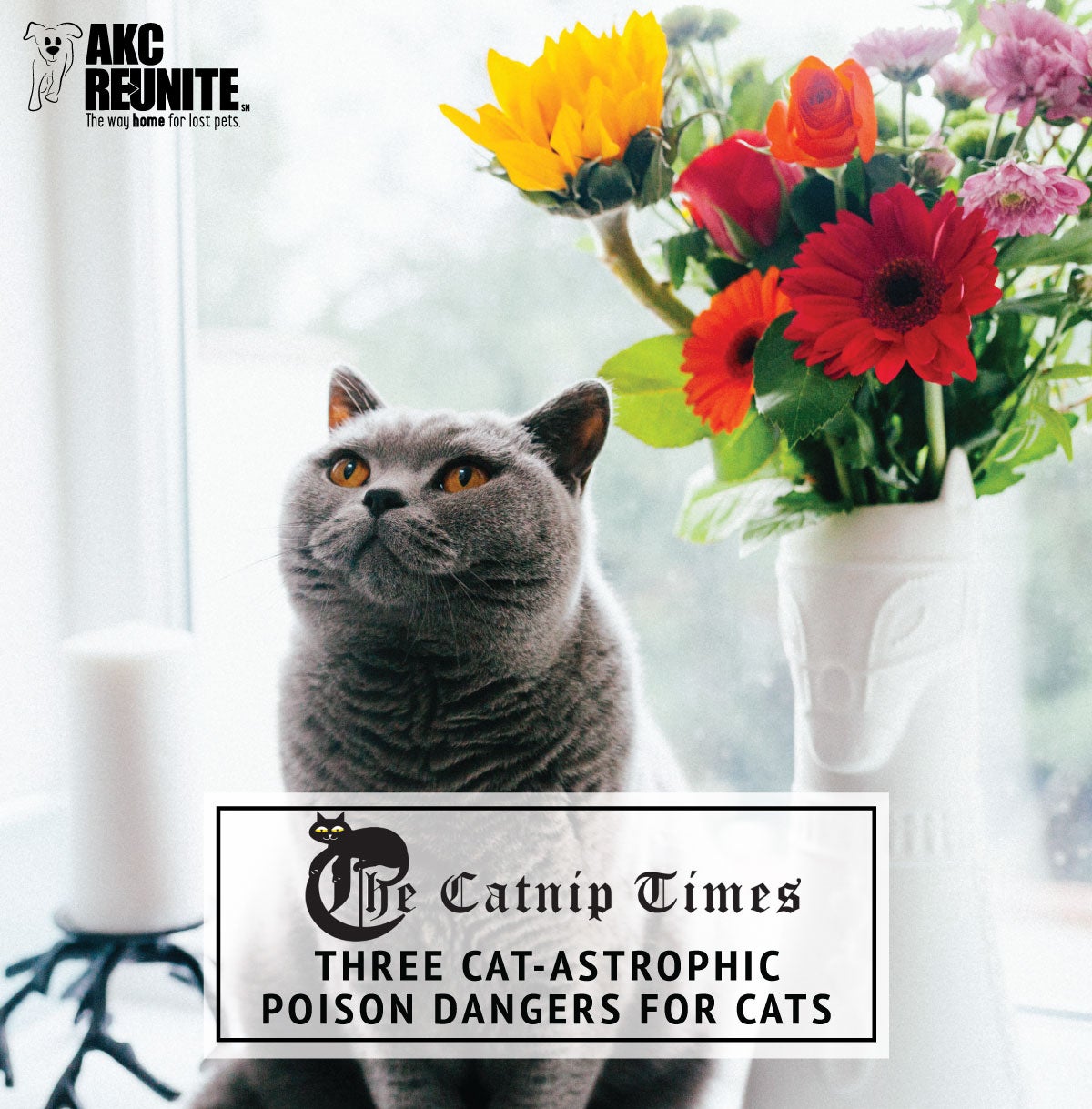Feline Hair Loss Can Be Dangerous
Just like people, cats can experience hair loss. And while it may just be the result of a change in seasons, old age, or an unseen accident, it can also be a symptom of something more serious. Fortunately, it’s rather easy to know whether it’s time for a visit to the vet when a bald spot appears.
Monitor Hair Loss Carefully
If you find a single tiny patch of fur missing and there is no sign of blood, pus or irritation, it may just be that your cat scratched too hard or rubbed against a rough surface — as we know they love to do. Keep an eye on the patch; if you don’t see hair growing back within a week, or the patch changes in size or appearance, or your cat looks to be irritated by it, or you start to see more bald patches showing up, you’ll know it’s time to visit the vet.
Read on for more information about why your cat may experience hair loss — and what to do.
Fleas
Some cats are allergic to the saliva left behind by flea bites (flea allergy dermatitis). While a flea-ridden cat will exhibit the typical symptoms of extreme discomfort and excessive itching and grooming, a cat who is allergic to their unwelcome friends will also experience patchy hair loss exposing raw, irritated skin, particularly on the neck and face. It is important to note that this allergic reaction can occur up to two weeks after all the fleas are gone. Visit your cat’s veterinarian for flea treatment and flea prevention medication.
Environmental or Food Allergies
Your cat may be losing hair due to environmental or food allergies as well. In fact, research indicates it is the leading cause of hair loss, and it will present itself as irritated patches of exposed skin. The most accurate way to figure out your cat’s allergy is to have your vet run tests and recommend solutions, but you can also try changing their diet or removing things from their environment that could be the cause. Sometimes gluten and grains can cause allergies – as can certain proteins. It’s essential to have your cat examined by your vet in order to find the correct culprit!
Ringworm
Ringworm is a fungal infection that can cause hair loss. If your cat has ringworm it is imperative that you take care of it immediately as ringworm is very contagious to other cats and humans. If infected with ringworm, older cats’ hair will become brittle and break off in patches, while kittens may experience red or white/gray crust patches on their faces, ears, and paw pads. If your cat is showing these signs of ringworm, visit a veterinarian immediately to confirm the diagnosis.
Hyperthyroidism
Hyperthyroidism is a glandular disorder caused by an excess or shortage of thyroid hormone. Hair loss is just one of many symptoms, so don’t panic at the first sight of it. The hair loss will typically present itself by becoming brittle and thin, losing its natural sheen and shedding in excess when you brush your cat. If you are concerned that your cat may have hyperthyroidism, head to the vet where they can run bloodwork to know for sure.
Psychogenic Dermatitis
A cat suffering from psychogenic dermatitis will lick itself compulsively to the point of balding. The good news is that this is not a disorder that can become fatal or cause any serious health risks, but you should still consider it a cause for concern as it may be a sign your cat is stressed, or it could simply be the result of a bored kitty. If boredom is the case, consider doing a new activity with your cat. If stress is the issue, try first to determine the cause. If you are still having trouble relieving your kitty’s stress, consult your vet about the possibility of behavioral therapy or anxiety medication in extreme cases.
About the Author
Dana Mack is a freelance writer and copy editor living in Illinois. She graduated from Columbia College Chicago, where she studied multimedia journalism. Dana enjoys arts & culture and outdoor/recreation writing, and aspires to move out West in the future.
Why Does My Cat Groom Itself
Does your cat lick itself constantly and have patches of fur missing or hair loss? If so, your cat might be grooming excessively. Here we'll discuss how to spot signs of excessive grooming, what might be causing it, and how to stop.
Three CAT-Astrophic Poison Dangers for Cats!
Did you know even the water from a popular Easter Lily’s flower’s vase can be dangerous to your favorite feline? But that’s not all! Not only are these items dangerous to cats, but the costs associated with veterinary care should they encounter any of these items can be expensive for owners.
Theories on Why Cats Rub Their Heads
Does your cat rub his or her face on things? It may seem like a strange behavior, but it turns out there may be an explanation behind it!






